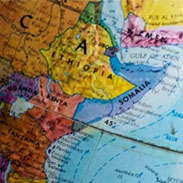From Discord to Dialogue: The Ethiopia–Somalia Peace Agreement
The Ankara Declaration marks a significant step in Ethiopia's push for Red Sea access, fostering cooperation with Somalia while easing regional tensions.
- Mohanasakthivel J
- December 27, 2024









